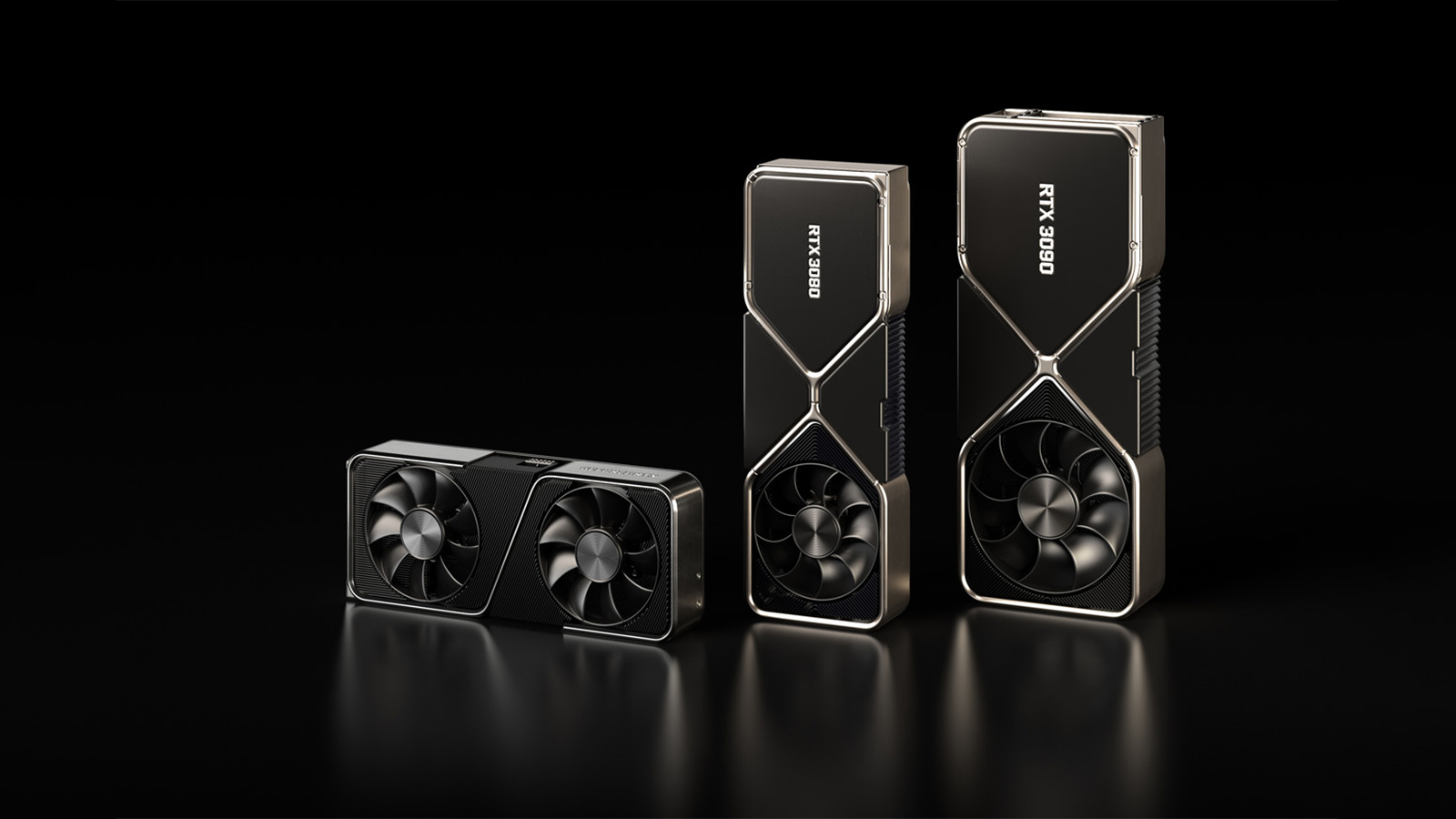Nvidia has admitted that it has found itself having to deal with an excess of RTX 3000 GPU stock to sell off ahead of the launch of next-gen Lovelace graphics cards – and while further price drops seem likely to stoke current-gen sales, which is clearly good news, we’re not sure how far these cuts will go.
This is all based on comments made by CEO Jensen Huang on a conference call following Nvidia’s Q2 fiscal results, as The Verge (opens in new tab) reports, with the chief exec giving somewhat mixed messaging around this Ampere stock clearance issue.
Huang didn’t make any bones about confirming the RTX 3000 GPU stock situation, mind you, stating plainly that: “We found ourselves with excess inventory. Our strategy is to sell-in well below the current sell-through levels in the marketplace to give the channel an opportunity to correct.”
The CEO added: “We’ve implemented programs with our partners to price-position the product in the channel in preparation for our next generation.”
We have indeed already seen Nvidia announce price cuts on higher-end Ampere graphics cards, and seen the prices of RTX 3000 GPUs fall consistently in recent times – so it seems this is likely to continue, as expected.
However, Huang made a few other comments which are flagged in the report that make us wonder how deep price cuts might go.
Namely that Nvidia is going to be pursuing a strategy whereby RTX 3000 graphics cards will be “layered on top” of next-gen GPUs as Huang puts it, and that Team Green also has other options in terms of getting rid of additional GPUs to data centers, perhaps, noting that “we hear quite broadly that GPU supply is in shortage in the cloud.”
Analysis: Alternative strategies in the works?
What’s the upshot of all this? Huang seems to be putting some emphasis on alternative strategies to help shed excess stock of Ampere GPUs faster, rather than straightforward aggressive price dropping, or indeed a bargain basement flog-off as the next-gen RTX 4000 launch comes closer. Of course, taking the latter route would not be popular with partners in terms of them having to really cut profit margins.
While we can expect further price cuts for Nvidia GPUs, then – as we’ve seen this has been a regular trend over past months, and we’d be surprised, nay shocked, if it didn’t continue – they may be more modest dips rather than outright slashing. Especially if Nvidia can palm off some of those excess graphics cards for data center usage.
The comment about layering RTX 4000 and RTX 3000 GPUs is perhaps more telling, as it suggests an expectation that Ampere stock will continue to be around for some time yet – again, pointing away from some kind of big rush to sell off. Both ranges can exist concurrently, and moreover, perhaps this is Huang hinting about something else that has been churning around the rumor mill lately. Namely that Nvidia will stagger the Lovelace GPU launch at a slower pace than usual.
So, rather than having the RTX 4090 appear (it’s rumored to be first out the door), followed by the RTX 4080 and then 4070 with a month between each – which was what early word from the grapevine theorized might happen – there may be several months between each of these cards. Or the RTX 4080 and 4070 may even be held off until 2023, which is yet another theory, and this kind of more sluggish cadence than normal may be what the aforementioned layering of current and next-gen GPUs refers to.
Ultimately we don’t know, and a lot of different nuances can be read into these comments. But broadly, the message we’re taking from this is: expect further price cuts to shift RTX 3000 stock in good time ahead of the next-gen cards, but don’t expect any slashed price tags or panic. Although of course, that’s the message Nvidia would want to send out anyway…
One last thing – as The Verge further highlights, CFO Collette Kress also chimed in to let us know that Nvidia will reach a “new segment of the market” with its gaming tech, without revealing anything further about what that arena or technology might be. Stay tuned, we guess, for a major revelation at some point in the future.





